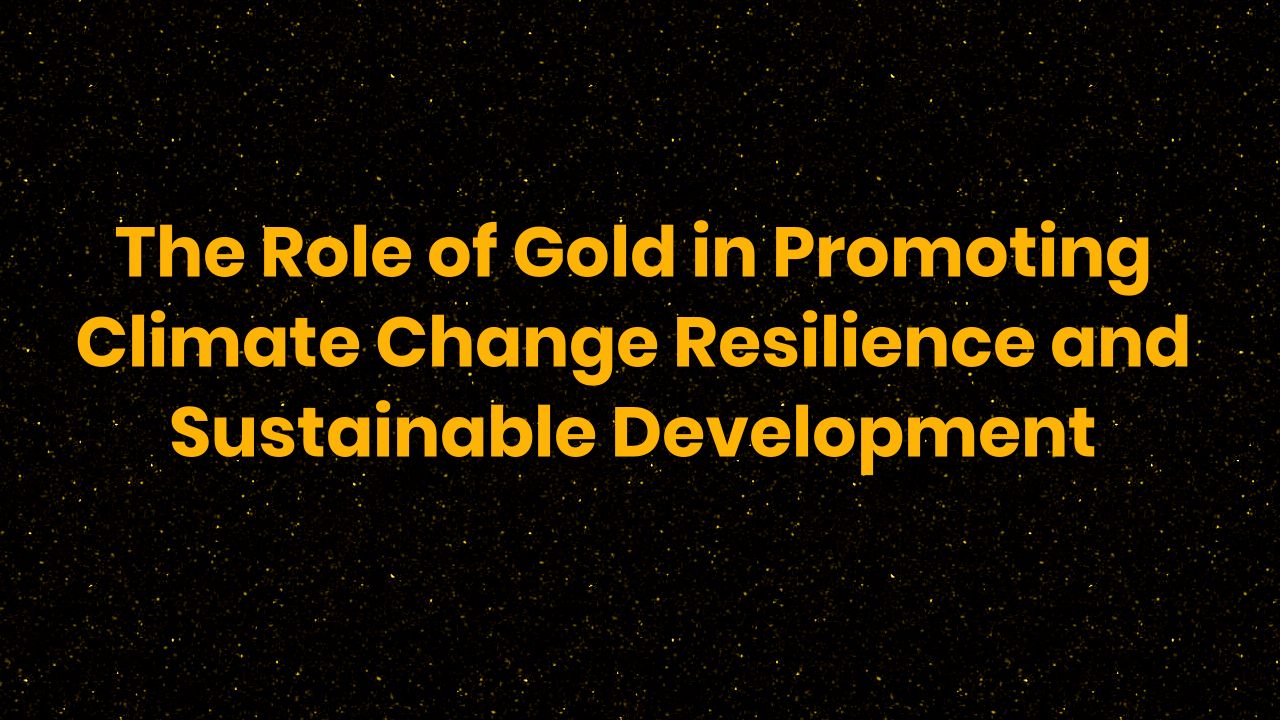
Table of Contents
Introduction: Understanding the Importance of Gold in Promoting Climate Change Resilience and Sustainable Development
Gold, one of the precious metals, has played a significant role in human history, providing a symbol of wealth and a store of value for centuries. However, the importance of gold goes well beyond its value as an item of luxury. Gold can contribute significantly to environmental sustainability, social development, and climate change resilience. In this blog post, we will explore how the responsible and ethical sourcing of gold can help create positive impacts and promote sustainable development practices.
Historical Perspective: Gold as a Store of Value and Symbol of Wealth
Throughout history, gold has been the symbol of wealth, prosperity, and power. Its rarity and beauty have made it a highly valued commodity that has been used as a currency for many centuries. The ancient Egyptians, Greeks, and Romans all used gold coins as a means of payment. In later centuries, gold was used to back paper currency, forming the basis of the monetary system. Today, gold remains a highly valued commodity, used for both investment and in the jewelry industry.
Environmental Impact of Gold Mining: Addressing the Challenges and Adopting Best Practices
While the extraction of gold has contributed to economic growth in many countries, it has also resulted in negative environmental impacts. Gold mining can lead to deforestation, soil erosion, and water pollution due to the use of toxic chemicals such as cyanide. However, responsible mining practices can mitigate these impacts. Mining companies can adopt best practices such as reducing toxic chemical usage, minimizing waste generation, restoring mined lands to their natural state, and ensuring the well-being of surrounding communities.
Harnessing the Potential of Gold for Sustainable Development: Supporting Local Communities and Promoting Fair Trade
The sourcing of gold can have a significant impact on local communities, including creating jobs, providing infrastructure development, and improving social services. However, the conditions of many gold miners are poor, and they often face hazardous working conditions and minimal wages. Promoting fair trade practices can help ensure that gold mining workers receive fair compensation for their work while also providing education and healthcare for their families. Additionally, sourcing gold from small-scale miners can help ensure the preservation of local traditions and cultural heritage.
Green Gold: Innovations in Sustainable Mining and Alternative Uses for Gold
Innovative developments in sustainable mining practices, such as using renewable energy sources and reducing greenhouse gas emissions, can help mitigate the environmental impacts of mining. Gold is also being used in technological advancements such as solar cells and medical devices, further expanding its potential uses beyond its traditional uses in jewelry making and investment.
Investing in Gold: Aligning Financial Objectives with Environmental and Social Responsibility
As an investment, gold can provide a hedge against inflation, a store of value, and a means of diversification. However, investors can also consider the environmental and social impact of their investment decisions. Investing in responsible and ethical gold mining companies and supporting fair trade practices can align financial objectives with sustainable development goals.
Gold and the United Nations Sustainable Development Goals: Leveraging the Power of Gold to Build a Better Future
Gold can contribute to the achievement of several United Nations Sustainable Development Goals, including promoting decent work and economic growth, reducing inequality, protecting ecosystems and biodiversity, and encouraging responsible consumption and production. Incorporating sustainable and responsible gold mining practices can help support these goals and contribute to a more sustainable future.
Conclusion: The Vital Role of Gold in achieving Climate Change Resilience and Sustainable Development
Gold has played a significant role in human history and will continue to be an essential resource for promoting sustainable development and climate change resilience. As we have seen, gold can contribute to environmentally sustainable mining practices, support local communities, and promote fair trade practices. By investing in responsible and ethical gold production, we can leverage the power of gold to build a better future that promotes environmental sustainability and social development.





